As to the reasons the Upper East has been wallowing way behind the others in everything that is supposed to exist, those who have a ‘third eye’ can always point to us where the rain is whacking us in the heads and why we are in a thick fog about the future.
The good things the others have in abundance, which are not found in the Upper East, are not scared of coming to us because of some violent disputes that are related to land, to chieftaincy or to something else. There are more reported violent conflicts, more protracted disagreements headlined on newspaper front pages about the other regions than there are in the Upper East, yet they are comparatively overdeveloped.
Below are 10 things you will find in the other regions but, for reasons best understood by those who know better than I do, are missing in the Upper East- very much to the displeasure of over 1 million people. They are missing generally as a result of “what successive governments have done to us and what we, too, have done to ourselves”.
The ‘Shifting’ Airport Site
There is no Bermuda Triangle in any part of the region to scare any airplane from landing or taking off. But the Upper East is the only region without an airport since the Queen untied Ghana 60 years ago from the British apron to manage or mismanage her own affairs of her own free will.
Only in this region will you find a ‘shifting’ airport site. What was supposed to be an airport started at Paga, Ghana’s border town near Burkina Faso, only as an airstrip. And it was in uninterrupted use until Burkina Faso complained without compromise about some cross-border interference in her airspace as air planes heading for the region normally would go through the Burkinabe air corridor first before they would touch down at Paga.
To avoid a diplomatic row with the French-speaking neighbor, a new site was proposed and settled upon at Anateem, a community in the eastern axis of the regional capital, Bolgatanga. The Mahama Administration in 2013 promised that an airport would be constructed at that new site in 2014. President John Mahama did not say it faraway in the Parliament House. He said it at Anateem, directly to a joyous durbar crowd and in front of grey-haired aviation experts who convoyed him and other senior government officials to the ‘settled’ site. But in 2017, after John Mahama had lost an election to Nana Addo Dankwa Akufo-Addo and had handed over to a new government, the new Aviation Minister, Cecilia Abena Dapaah, visited Bolga Sherigu, another community in the regional capital, and tasked officials of the Ghana Civil Aviation Authority, GCAA, who escorted her to the region, to conduct fresh feasibility studies at a ‘new’ site at Bolga Sherigu as applauding traditional powers listened with glee and the accompanying press corps meticulously put pen to paper.
The lack of an airport alone in the region since the dawn of airways in Ghana probably has killed more people indirectly than any disease outbreak known to the elders of the region.
Perhaps, if the region had been given a deserved airport at the time the others got theirs long, long ago, the philanthropic Upper East Regional Chairman of the now-ruling New Patriotic Party, Adams Akalbila Mahama, would have survived the unsolicited 2015 midnight acid bath.
A standby helicopter at an airport in the region would have simply airlifted him to a facility more resourced than the Upper East Regional Hospital, where he agonizingly drew his last breath.
More often than not, we see the bodies of critically ill patients brought back to us for burial after they have suffered negotiable deaths on the way whilst being ambulanced on referral from Bolgatanga to Tamale, the Northern regional capital. It simply takes an airport, no matter how small it is, to spare the region more grief over the lost lives of her promising young people, responsible men and hardworking women. It takes an ambulance between 1 hour 30 minutes and 2 hours to get to the Tamale Teaching Hospital from Bolgatanga. But the same distance takes less than 45 minutes for a helicopter. The difference between the two means of transport here is the irreversible damage the delay of the former poses and the desirable rescue the speed of the latter promises.
Besides, schoolchildren in the airportless Upper East would be spared the needless risks that may result from long-distance excursions by road to the Tamale International Airport just to catch a glimpse and grab a feel of the aircrafts they only see in books or on television sets, if the region had its own airport. I feel thoroughly embarrassed each time I see school children from the Upper East line up in Tamale to take photographs for the first time with an aircraft, which is as common to their contemporaries elsewhere as a flying bird in a book, and they are as too happy as an ordinary churchgoer handed an exclusive invitation to dine with the Pope in Rome.
Whilst the proposed airport site keeps hopping ominously from one community to another like the much-coveted English Football Association Community Shield, the other regions are far ahead, pressing government hard without a moment’s rest to upgrade the airports they already have.
Moreover, the lack of that crucial facility is not only impeding the massive-to-be residential and business development potential which the region stands to enjoy especially around the eventual location, but could also dampen foreign investors who may want to swing into the region with a juicy barter and a hard-currency cash. A flight from the national capital, Accra, to Tamale takes 45 minutes and an extra 2 hours by road from Tamale to reach Bolgatanga. A time-conscious investor in an increasingly competitive global market, even if the road is safe and it is not overdosed with security checkpoints, would like to look elsewhere.
For now, we hear the sound of a helicopter only when a unique disaster strikes a community or when the President of the Republic is on a re-election campaign tour of a constituency. Sadly, the more the airport site shifts, the more the region is divided. Even though experts have explained to the public through Starr News that all three sites- Paga, Anateem and Bolga Sherigu- are candidate locations for now, the renewed agitations over the recent shift have rather hit the roof!
The experts only announced the candidature of the three places. They did not mention the criteria for the endless-looking adoption of proposed sites. That makes the provoked public think there would eventually be more sites than just the 3 locations already proposed and there would be more commotion even in the short run. No responsible government would want to be responsible for the foreseeable outcome a bouncing project site can bring upon co-existence in a multilingual region.
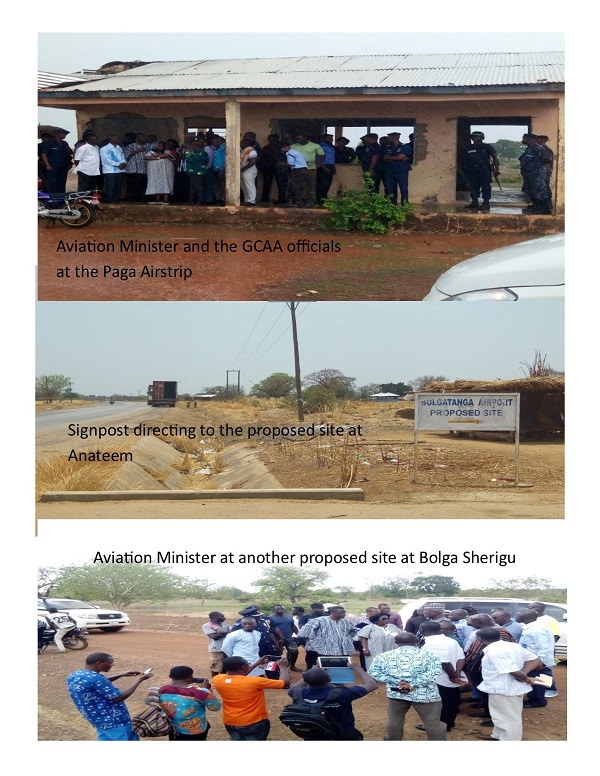
Shameful Stadia in Homeland of Abedi Pele and Sons
There is not a single structure in the region which natives who are sports enthusiasts can proudly point at as a stadium.
The structures the region calls stadia are so disappointing that strangers wonder why the great Abedi Pele and his accomplished footballing sons look indifferent to whatever happens in their region of origin even if the Ghana Football Association, in collaboration with the Ministry of Youth and Sports, has something against the people of Upper East.
The so-called stadium in the regional capital, merely a bushy piece of land with crumbling walls awfully surrounding it, is only fit for shooting horror movies one of which may earn an Oscar nomination. What is supposed to be solely a sports ground is being used today also as a free 24-hour public toilet and a reliable rendezvous for immoral activities as the facility is not secured.
The sizes of the faeces I saw there the last time I decided to find out more about the densely bushy corners of the stadium reminded me of the portion of the Bible where Jesus Christ remarked that ordinary “flesh and blood” could not have revealed his messianic divinity to his disciples. The faeces I saw there could not have come out from ‘mere mortals’ or mere flesh and blood. They surely were human waste induced by marijuana overdose. They are in the bush there in exemplary sizes and award-winning shapes. I left my camera there as I had to reverse quickly from the ‘awesome’ spectacle.
Even for some time, the so-called stadium was also being used as a donkey market until Starr News dragged the rot to the fore. That grassless facility does not have a dressing room. Professional players use any space they can find inside their buses as their changing room before and after every match played in front of ordinary spectators and VIPs standing in the sun or rain for more than 90 minutes to dole out cheers to their favorite clubs. I am told the Albert Abongo Regional Administration tasked the assemblies in 2016 to raise Gh¢10,000 each to grow grass on the pitch, to complete an abandoned dressing room project standing in hopeless ruins on the unkempt premises and to construct some stands for spectators.
The assemblies complained that the amount was on the high side and, despite the fact that it was brought down to Gh¢5,000 and later reduced to Gh¢1,000 as further complaints hung in the air, only two assemblies-Nabdam and Bolgatanga- have responded positively so far with Gh¢1,000 each. And incredible as this one may sound, multiple sources have confirmed that some assemblies have concluded they would not take part in the contribution towards the mini refurbishment of the regional capital stadium because “it would benefit the regional capital alone”. 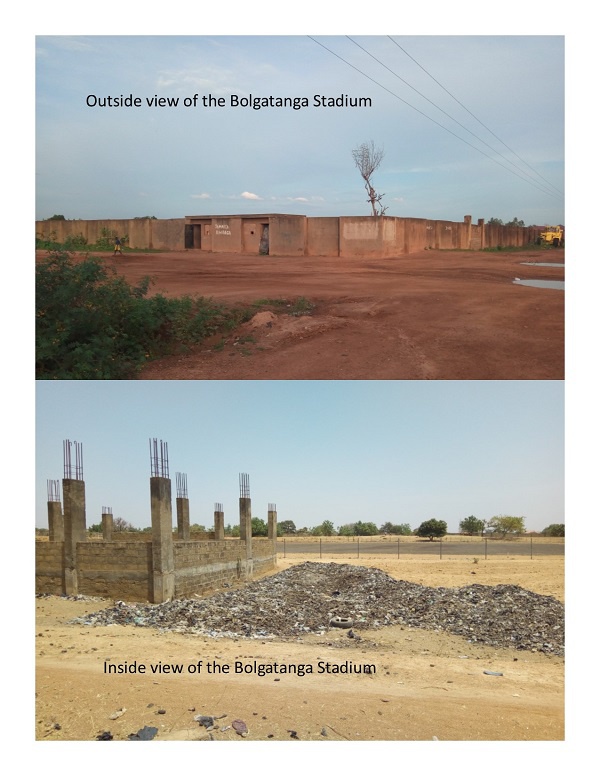
Abandoned Regional Theatre Project Crumbles
A big-congregation church used to worship at the structure we are told is supposed to be the Upper East Regional Theatre.
It is on the premises of the Centre for National Culture (CNC). That church occupied the building for some years until the structure could no longer contain the number of souls it had won and eventually had to relocate. It moved not too long ago to its own permanent site. But the theatre project has not moved by a whisker from where the handlers abandoned it many years ago.
This is a project that is supposed to bring in revenue for the region and to also inspire script writers and film producers to keep the flames of the region’s traditions and cultures alive through the ‘edutainment’ power of Performing Art! A theatredom proposed as a cure to boredom still looks stillborn since the project started with thousands of the taxpayer’s cedis long ago. As the picture shows, the cash sunk in the project, exposed uncompleted to all kinds of weather, is wasting away and it looks it may have to start all over again.
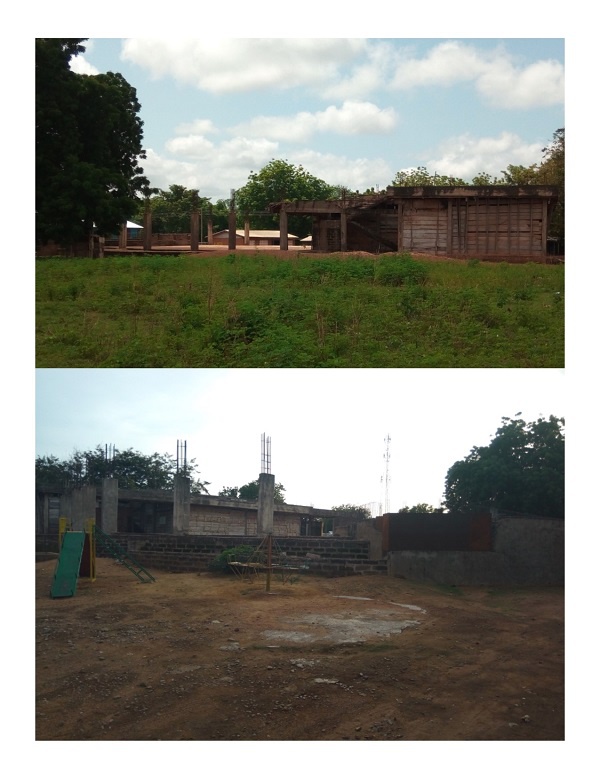
Children’s Park now Baby Dumping Site
Each time you pass through Tamale or Wa and you see young men and elderly people jogging in colorful sport garbs to the stadia, your heart gets warm with pleasure. You get the same feeling about the numerous recreational centres and children’s amusement parks you see when you walk the capitals of the other regions.
There is no recreational center in the Upper East. What seems to be the recreational centers in the region are the ballooning drinking spots competitively adjoined to each in every corner and in every street. The drinking spot has been the most likely place someone you are looking for is relaxing to meditate and would direct you to when you call. What we call Children’s Park in the regional capital is a horrifying-looking facility well positioned for every eye to see along an international road that links Ghana to Burkina Faso.
It staggers in absolute ruins today, with keep-fit clubs dueling each other in football games at the weekends there. A church holds night prayer meetings in a bald portion of the premises. And in what has been a ‘silent clash’ for dominion between a church who hopes and a clique who dopes, some drug addicts also hold fellowship meetings at the same park, in the bushy sections of the abandoned facility for nocturnal smoking. As you pass through the highway at night, you can see the red lights of marijuana glowing from within the forest in the roadside park like the natural lights that flash from the lower abdomen of the insects called fireflies or lightning bugs.
It should be a place where parents or guardians can leave their children to pick up great ideas as they play and interact with other kids under the supervision and guidance of child development experts. The bouncing castles and the pen houses we see happy children interacting with in the other regions are rarer than Santa Claus in the Upper East. The last time kids saw bouncing castles and the like in the regional capital was somewhere December in 2013. They were hired from outside the region and brought for kids to have a feel at a fee. And since then, the bouncing castles have not bounced back to the region for ‘justifiable’ reasons best kept to those who brought them.
That park has been one of the most patronized grounds for daylight open defecation. It has been a plot ‘demarcated’ or ‘endorsed’ for unrestrained open defecation by the sheer silence of those who are paid to act. Only a few years ago, an aborted baby was dumped in a weedy corner of the park. The baby was found dead, using its own placenta for a pillow. Timely find prevented stray pigs from chewing the body of the beautiful but unwanted infant. A park where happy children are meant to gather for rapid physical and mental growth is what has turned into a fallow den where unspeaking newborns are dumped to die under the watch of duty bearers!
A Travel-hopeful Region without a Passport Office
Lots of responsible young men and women in the region do have travel intents but their attempts are met with needless frustrations. A region where many people are still held in ‘poverty custody’ does not need an extra burden of travelling to another region with all the risks and the expenses involved to obtain travel passports.
If the office rooms of the Ghana Immigration Service are too choked to establish a passport issuance desk in the Upper East region, I am sure the land is not too choked and no amount of compensation for acquiring a portion of land for a passport office is worth one life or lives that may be lost on the road one day as people continue to endure the 2 hours of a road journey to Tamale and another 2 hours coming back in a bid to own an essential travel document for moves that would benefit not just the travelling individual but also the region in the long run.

Good news for Criminals: Police have no PRO in Upper East
One of the ways to ensure effective crime control is the timeliness of reporting the news as and when a criminal story breaks. And the person who can make that happen is the police Public Relations Officer who stands between a police command that is expected to be busy and media practitioners who will always rub shoulders together to grab a headline before the deadline.
The last time a police PRO spoke to the public through the media in this region was 2015 when the former PRO, ASP Thomas Yao Agbanyo, left the Upper East for the Volta as a district commander. Since then, nobody has stepped into his shoe.
As a result of the unexplained vacuum, the police commanders in the region now have an extra duty to speak to the press all the time- something most of them are not comfortable with. The press also are getting more and more frustrated as some of the police chiefs keep avoiding them.
But this is something the criminals, whose do-or-die interest is to terrorize the region, must be comfortable with. The less crime is reported, the more it is committed. A police PRO, as hardworking and media-sociable as the long-serving one who left in 2015, would make the region safer for residents and more business-friendly to investors. Police have a PRO in every region. They do not have one in the Upper East today. We are all at risk- natives, strangers and all the security officers themselves! Good news for the criminal gangs- crime is real but it is getting less public attention!

Toilets locked to Tourists at supposed Art Centre
The region has a duplication of the bustling art center the other regions have in their capitals. It is called the Bolgatanga Craft Village.
We are told the Centre for National Culture, CNC, manages the art center in every region. But that is not the case in the Upper East. The CNC and the craft village are on the same premises but each one is on its own and government for them all.
The idea of the establishment was to bring all craftsmen to one common ground where beautiful artifacts are on display with a continental cafeteria, internet café and lots of traditional music blaring in the background from dawn to dusk. Since it was commissioned more than a decade ago, scores of artisans, unenthused about the much-proclaimed promises of the “common ground”, have stuck themselves to their old market corners, strongly disunited across the regional capital.
Tourists feel terribly unwelcomed when they want to answer to the call of nature at the craft village and they are told the toilets are locked. The toilets have remained firmly locked for more than 10 years because government is not ready yet to provide just one pipe needed to connect water to the lavatory. At present, a ‘serious-minded’ trader is making ‘judicious’ use of the entrance to the washroom with his articles hung everywhere for prospective buyers to see.

A Rehabilitation Centre that needs Rehabilitation itself
If ever there was one rehabilitation center in Ghana in desperate need of rehabilitation itself today, it is the Bolgatanga Rehabilitation Centre for persons with disabilities in the Upper East. You may prefer to be wrongfully locked up in a military guardroom for a month to doing a deserved jail term of just one week inside one of the decomposing rooms of that rehabilitation center.
The neglect of that facility, which is the only training school in the region for physically disabled and vulnerable persons who want to acquire employable skills so they can say goodbye to the unrecognized ‘Beggars Union of Ghana- BUG’ to join the benefitting workforce in the region, only shows how little or hardly someone cares about the region and about the PWDs whose federation keeps growing as we all are potential PWDs- persons with disabilities or deformities.
The center has been closed down for 7 years because government cannot provide the disabled apprentices with feeding grants as well as teaching and learning resources!
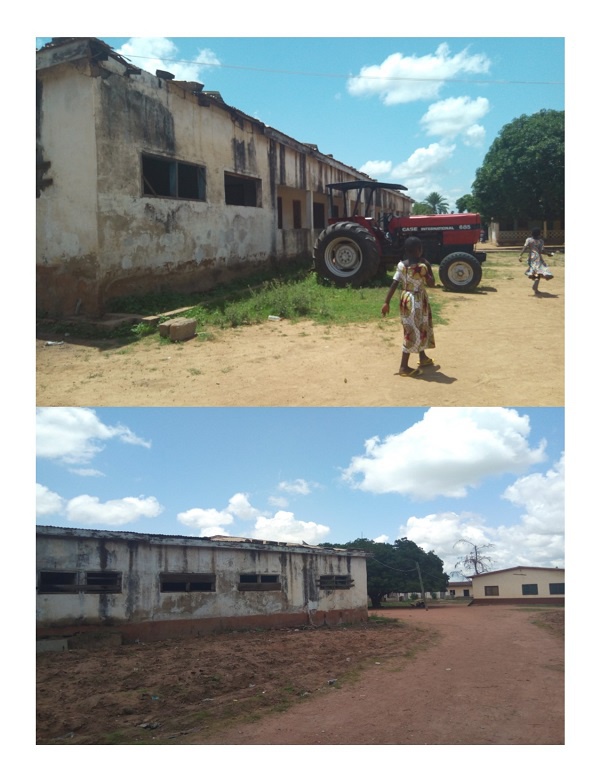
RCC has no Bus for the Press
Before you climb the RCC’s block, you would meet a bold mission statement that reads: “The Upper East Regional Coordinating Council (UERCC) exists as an arm of the Executive to provide quality administrative and technical services by effectively coordinating, monitoring and evaluating the plans and programs of MDAs/MAs/DAs and NGOs in order to achieve the overall development of the Upper East region.”
How the RCC gets its stories packaged and told to the public depends largely on how it courts the media for company. As the death of a senior Ghanaian Times correspondent in 2015 overshadowed the presidential assignment he just covered and it was widely blamed on the condition of the bus hired for the press, so is the RCC, for that matter the Executive arm of Government, gradually losing its once-dominant visibility in accountability.
Media practitioners, who report how the RCC coordinates, monitors and evaluates the activities of its partners for the “overall development of the Upper East region”, are increasingly unhappy about transportation arrangements for long-distance coverage. The RCC is on a coverage decline. So is, therefore, the reported visibility that should encourage its development partners to perform and which should keep the public informed.
It is a dangerous trend for democracy in a region expected to grow rapidly through active and sustained public participation in the decision-making process. Every region, except the Upper East, has a special bus for their everyday partner in development- the press.
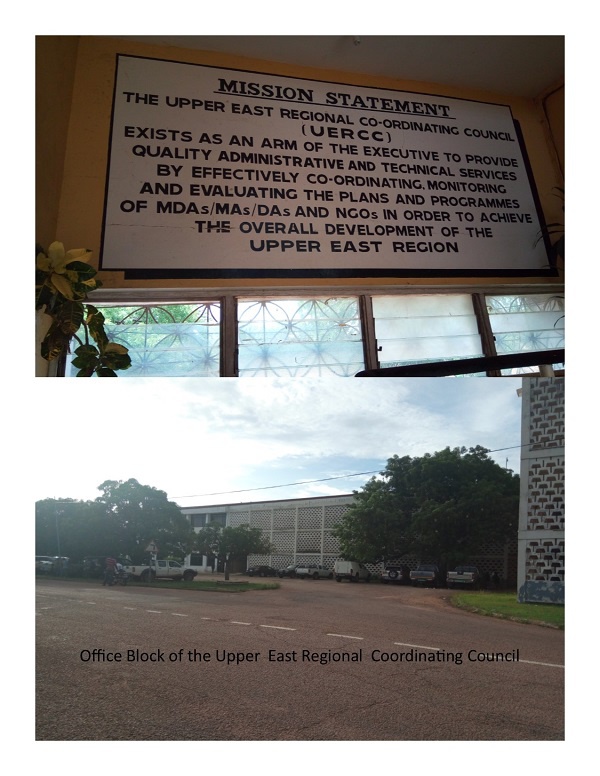
Missing Celebrities who don’t give back to Society
There is power, so much power, in celebrities visiting their homelands once in a while to inspire the youth through meaningful donations and quality interactions.
Celebrated colleague, Manasseh Azure Awuni, donated books to his community (Bongo) recently and a few other selfless citizens are running genuine civil society organizations to tow the region out of the deep ditch of poverty and low self-esteem. Of course, there are individuals and groups who are not well known but do show love to the deprived not necessarily for publicity but for humanity. And credit to those who add publicity to their charity as the idea has often encouraged others to think of those who are naked not because they are immoral but because they hardly eat two times a day let alone to dream of owning an extra cloth to the only one they have always worn.
But there are still a lot of people who hail from this region, have benefited from the sweat of others and have achieved so much in life but have refused to return home to propel and support development in their communities.
One unpardonable failure that can overshadow the success one has taken years to achieve is to wait until you retire and expire before you aspire to inspire the communities who admire you and the kinsmen who desire to be like you.
The likes of Atongo Zimba, King Ayisoba, Roland Agambire, Adams Larsen Kwarasey, Abedi Pele and sons and other accomplished men and women, obscure and well-known, need to stand by the children who have no exercise books and storybooks, the thirsty communities that have no drinking water, the youth who only need a successful person to believe in them, the classrooms that have no teachers, the backyard farmers whose livelihoods are threatened, the widows whose rights have been sold out, the orphans whose families are at the lorry stations, a single mother whose plight should come to light and a depressed soul who is always caged indoors because he or she thinks the sun will not shine again.
There is power, so much power, in meeting those behind you after you have met success. Bill Clinton, the 42nd President of the United States, only shook hands with President John F. Kennedy, the 35th Commander-in-Chief of the US Armed Forces, from a crowd when he was 17 years of age and got inspired to later in life run for the presidency in the United States. More examples abound around. A donation of jerseys personally made to school and community football clubs by the prominent footballers who have their roots in the region is yet to happen for once. And one can only expect that more future stars would be inspired through such encounters. There are many rusty-looking children in your communities whose great destinies are tied to just a handshake with you. But you have been so far away somewhere else all your life, shaking hands in absentia and voting by proxy. Your hand is badly needed at your roots. So is your thumb in the village!
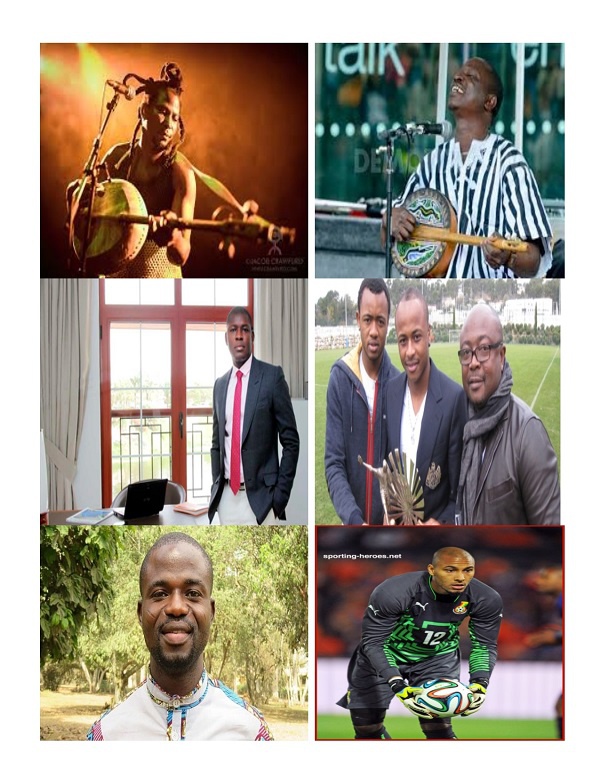
But one good thing about Upper East
Whilst I am also still asking to know why this region, with lots of women empowerment advocates in its inexhaustible reservoir, is yet to have a female district coordinating director from the era of British Ghana up to now, I have also kept wondering why the region, unlike her siblings, does not have a newspaper or a television station to thoroughly showcase its values, identity and worth.
Needless to say, this is the only region in Ghana yet without a roundabout at a time the others are talking about interchange. The few traffic lights in the region, found only at 5 junctions in the regional capital and at 1 spot at Bawku, are ‘clinically dead’. They have joined their ancestors- the telephone booths installed in some secondary schools in the region some years back.
I think it is a simple formula. The region may only need to do what the others do to earn the same good results they have. Maybe it is time the region spoke in one voice. And maybe it is time the individuals, both natives and strangers, started thinking less about themselves and their families and more about the tomorrow’s wellbeing of the land.
Not too long ago, celebrated preacher, Rev. Eastwood Anaba, led his church in an all-white-shirt route march to the RCC block, demanding an immediate stop to transfers of habitual drunks in the civil service from the south to the north as punishment. As to who made the Upper East a punishment ground, a dumping ground and a ‘forsaken’ sector of the country, we could blame both the hawks (successive governments) for doing the ‘robbing’ and the hen (the region) for ‘abandoning’ its chicks.
But there is one thing I love about this land aside from its beautiful landscape and numerous though undeveloped tourist sites. I have always said if the Frafras and the Dagaabas were to live together alone in one community, there would be no need for a police station there. It would be the same if the Kassena-Nankanas and the Gonjas, the Kusasis and their in-laws, the Dagombas and the Moshies, the Mamprusis and the Moshies or the Builsas together with the Sissalas and the Gonjas among other ethnic playmates in the north were to live in one neighbourhood. These ethnic pairs are playfellows whose deep-rooted bonding and undying passion for jokes that bind, irrespective of the ages or the social statuses of the players involved, know no boundaries.
Some time ago, a Dagaaba teasingly held a Frafra baby over a boiling pot of pito (a popular local beer in the north brewed from guinea corn) and was throwing the toddler up and catching as people watched with a bit of unease. As he continued doing so, the baby slipped and dropped in the pot. It was a disaster. But the matter did not end where many would expect- the police station. It was resolved among them. And fortunately, the baby also survived.
Another drama reportedly came up at Wa in the Upper West region some years ago. Former Pro-Vice Chancellor of the University for Development Studies (UDS), Professor Saa Dittoh, a Frafra, was reading a newspaper one cool evening in front of a structure by the roadside. As he flipped through the broadsheet attentively, he was also carefully sipping some fruit juice intermittently from a beautiful pack placed on a table before him. He crossed his legs and was enjoying himself alone. Then, suddenly a young Dagaaba, who was returning from work, sneaked to that table, picked the drink and raised it close to his eyes as if he wanted to inspect the label.
Stunned, the professor closed the newspaper immediately, uncrossed his legs and sprang to his feet to watch in wild silence from behind a pair of eyeglasses.
What on earth gave this young man the nerve to walk to my drink and, without saying a word to the owner, picked it right in front of me, the highly respected professor might have whispered to himself whilst praying for a third person to join him to wonder.
But the young man was not in a hurry at all to respond as he continued to inspect the label carefully in silence whilst the Pro-Vice Chancellor looked on in tense awe. Horror! The professor, with a big proud pair of the Frafra tribal marks on both cheeks, must have screamed whilst holding his own waist firmly in front of the unconcerned-looking Dagaaba whose eyes were glued to the label.
When the intruder was done with the label inspection, he smiled and quaffed everything in the pack- to the utter shock of the veteran lecturer! The young man twisted his lips with satisfaction and rubbed his chest after gulping the sweet contents and, then, asked with a smile why a Frafra man, and not a Dagaaba, should think he deserved a nicely packed beverage. The professor burst into laughter and whipped the man lightly with the newspaper. And that was the worst he could do after recognizing that the trespasser, though an unfamiliar face, was from a playmate ethnic group. They had good laughs, exchanged pleasantries, shared contacts and parted ways. You do not need to waste resources in putting up a police station where Frafras and Dagaabas live together. They have no use for one! You may have to use the fund for a school project or a dog meat processing factory. But if it is a police station, they would have no use for one!
Whilst the distressing depth of the under development we see in the region may be blamed on successive structures and the region itself as a society that has been singing a discordant tune for development all along, you may also agree that a joint Nobel Prize for Peace is long overdue for all the ethnic playmates in the region, and beyond, whose inter-ethnic tolerance, far old in years, has remained a strong promoter of the peace and the development that would benefit not only the natives but the strangers as well. It sounds like the assurance from the old adage that says, “When the branch is at ease, the bird that perches on it also would be at ease”.
General News of Wednesday, 5 July 2017
Source: Edward Adeti













